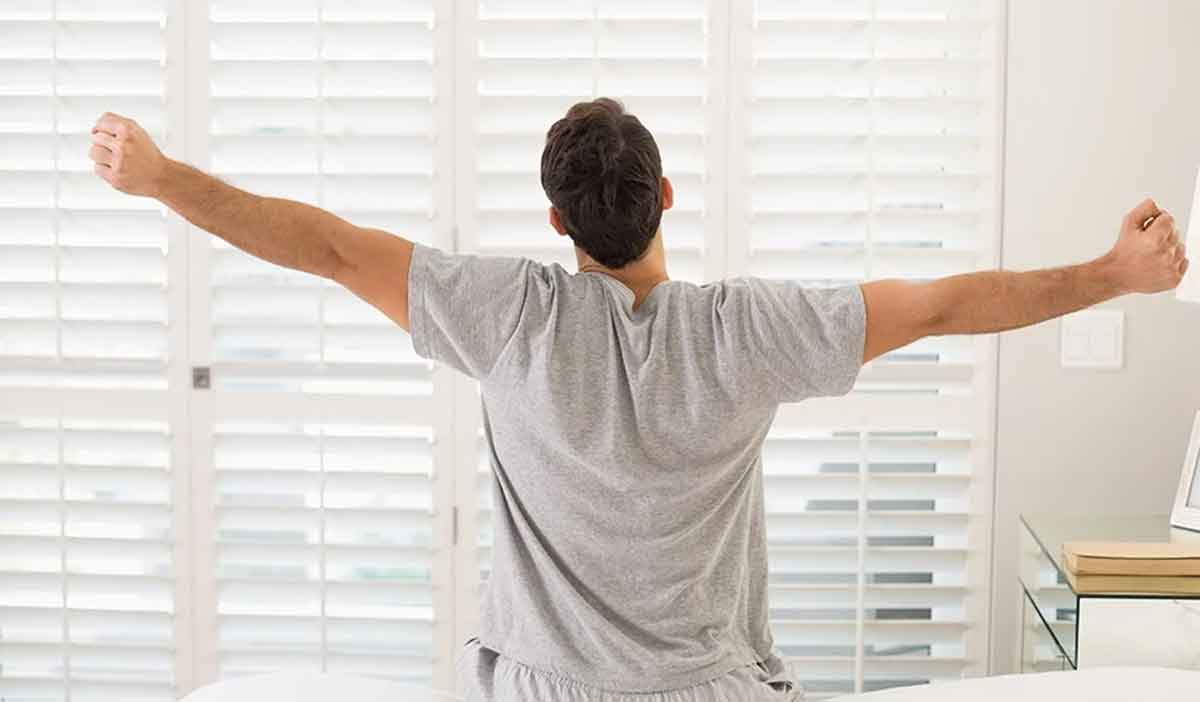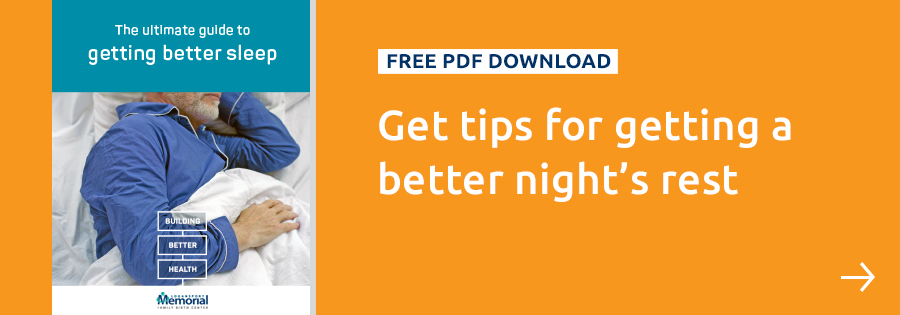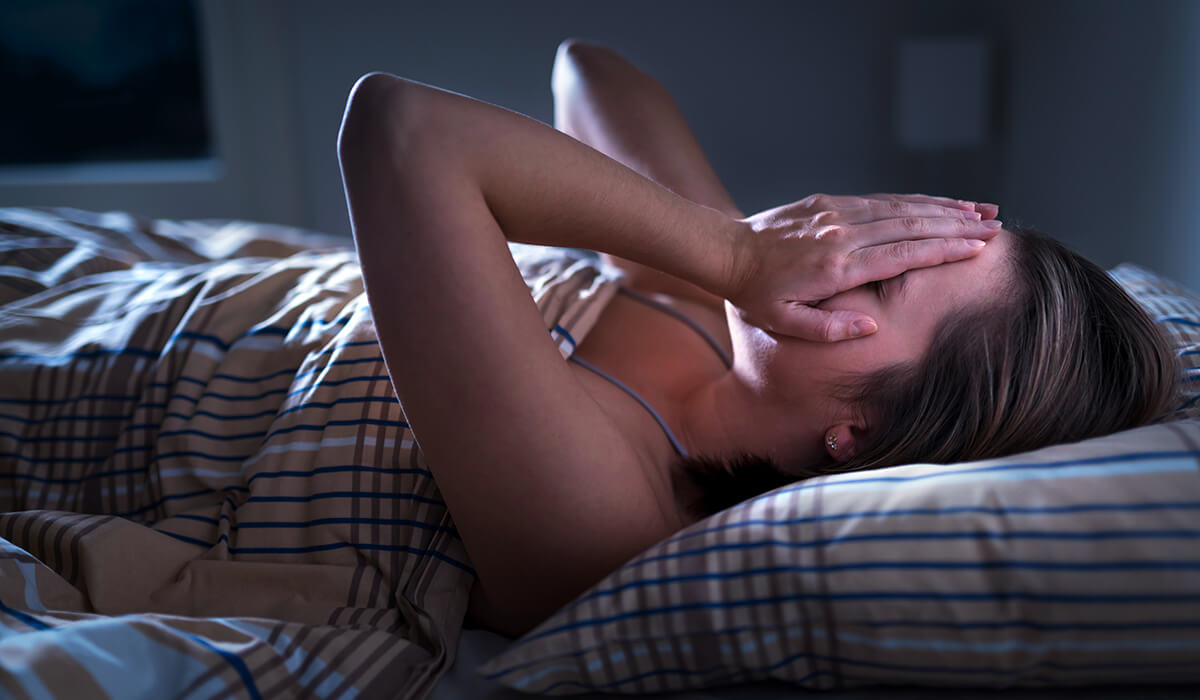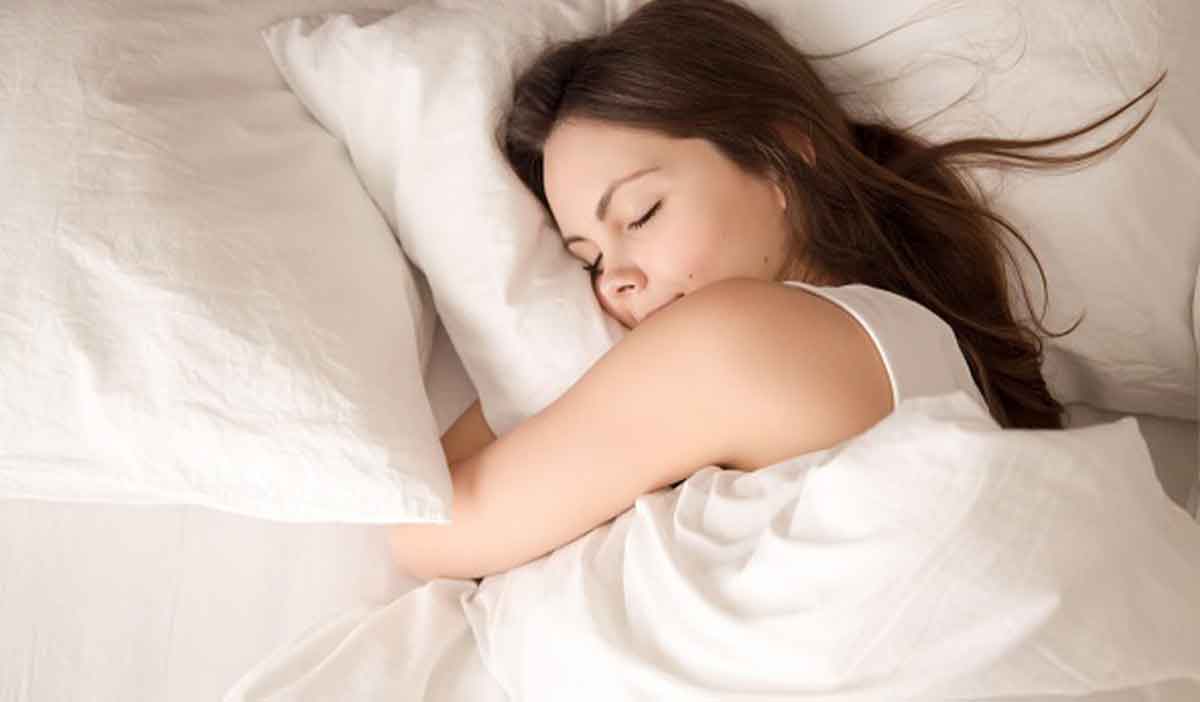According to the National Sleep Foundation, your need for sleep decreases until you turn 20 years old. That’s the age when it usually stabilizes.
Most adults find their “sleeping sweet spot” is getting somewhere between seven and nine hours of sleep each night. And, if you regularly get about eight hours, that basically adds up to spending about a third of your life asleep.
That’s a lot of zzzzzzzzzzzzzzzzzzzz’s.

Curious how much of your life you have spent sleeping so far? Calculate the time with the My Life Asleep tool.
But, what is exactly happening during all of those hours spent sleeping? Though there are still a lot of mysteries surrounding sleep, researchers know quite a bit about how not getting enough affects your health, from daytime sleepiness and irritability, to lowered motivation and slower reflexes.
If you’ve found yourself tossing and turning at night (and struggling to get good sleep), here are three tips on how to get more restorative rest the next time you crawl into bed for a snooze.
1. Set a schedule
Many people find that their sleep improves when they keep regular hours. Figure out a schedule that will work consistently for you. Then, stick to it. Try to hit the sack and wake up at the same time daily (including weekends). Even if you feel tired, avoid the urge to hit the snooze button.
Develop a winding down ritual to help your body switch into sleep mode. Spend time before going to bed taking a hot bath, reading, or doing another calming activity. For some people, this unwinding period means not using TVs, laptops, tablets, or smartphones. Electronic devices emit a sleep-inhibiting light that can stimulate and suppress your body’s release of melatonin, a sleep-inducing hormone.
Bonus tip: Aim to get in some aerobic exercise daily. Getting your heart pumping during the day will help you fall asleep quicker and wake up fewer times during the night. If you find strenuous exercise affects your sleep, plan to do your workout at least two hours before your bedtime. Yes, that means late night Zumba classes! On top of being stimulating, exercise raises your body’s core temperature, which can interfere with your ability to fall asleep.
2. Watch what you drink
Caffeine is what doctors refer to as a stimulant. If you drink soda, tea, or coffee in the evening, it can interfere with your body’s ability to fall asleep and even make it harder for you to get deep sleep. Play it safe and stick with water, herbal tea, and caffeine-free drinks whenever possible after lunch and especially just before bedtime. And, if that doesn’t do the trick, you might even consider cutting caffeine from your diet to help improve your sleep.
Like beverages that have caffeine, alcoholic drinks can interrupt and fragment your sleep. To limit its affects on your sleep, experts recommend to drink in moderation.
3. Create a restful sanctuary
It’s easier to fall asleep in a bedroom that’s dark, cool, quiet, and comfortable. On top of creating an environment that is conducive for sleep, don’t forget about your bed and mattress. It’s harder to get deep sleep if your bed is too soft, hard, or small.
Have more questions about your sleep?
Logansport Memorial Hospital runs an ACHE-accredited sleep studies program. Its team of sleep experts help patients diagnose – and resolve – common sleeping issues. If you think you might be a good candidate for a sleep study, talk to your primary care physician.





